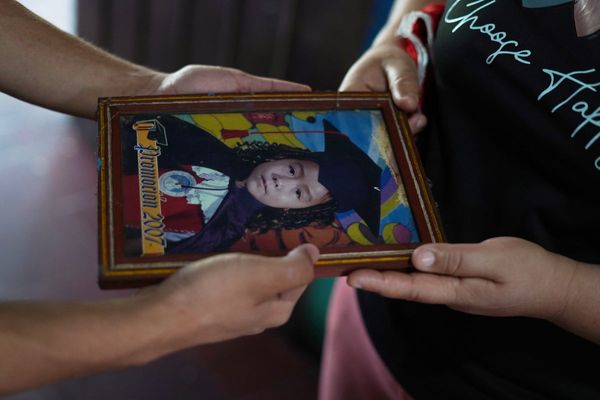
This rich, beautiful and inexpressibly sad film is about the friendship between men who can’t talk about their feelings and about winning and losing at the great game of life. It is set in the breathtaking and wonderfully photographed Italian Alpine valley of Aosta, which includes the slopes of Mont Blanc and the Matterhorn. But the “eight mountains” of the title refers to the eight highest peaks of Nepal: a mysterious symbol of worldly ambition and conquest.
Belgian film-makers Felix van Groeningen and Charlotte Vandermeersch have adapted the award-winning 2016 novel by Italian author Paolo Cognetti and have created a deeply intelligent meditation on our capacity for love, and how it is shaped by the arbitrary, irreversible experiences of childhood, and by our relationship with the landscape. The Aosta valley is depicted with magnificent sweep, and van Groeningen and Vandermeersch find a stratum of sadness under it, a kind of water table of tears.
We begin with the friendship of two 12-year-old boys, Pietro and Bruno, who get to know each other when Pietro’s mum and dad – to get away from the petrol fumes of Turin – come to the (fictional) village of Grana for the summer; Pietro befriends local lad Bruno, who is staying with his farmer uncle and aunt. They roam far afield in this magical place.
But their Edenic friendship is ruined by Pietro’s parents, who make a heavy-handed and misjudged offer to let Bruno live with them in the big city and attend high school there. Bruno’s absent father objects to this condescension, and takes the boy away to work with him on a building site while Pietro starts a troubled middle-class student career. Pietro never forgives his father for splitting them up, and for being more impressed by the tougher and more alpha Bruno, who is a real outdoorsman. He never speaks to his father again.
But fate reunites Bruno and Pietro as tough, bearded young men, played with subtlety and gentleness by Alessandro Borghi and Luca Marinelli. After a reticent, wary start Bruno suggests that, as neither have any work on, they spend an Alpine summer building a shack in the valley that will be their special place.
It is not being too facetious to call this the straight Brokeback Mountain. In building this rudimentary stone hut, they have attempted to rebuild their childhood, rebuild their love for each other. But Pietro is to make a terribly painful discovery that, in his long and bitter absence, his wounded father actually became a friend to the grownup Bruno, hiking with him in the valley and becoming a quasi-father to him. And, to add to the mortification of having his dad stolen from him by Bruno, Pietro finds that the young woman he is sort of interested in, is more interested in the unassuming Bruno. So poor Pietro leaves all over again, travelling in Nepal and becoming a celebrated writer, but consumed with the thought that his friendship with Bruno was the best of him – and Bruno was in some elemental sense the better man.
This is a movie with air in its lungs and love in its heart. It is spacious and unhurried in its devotion to beauty and to what it means to be human. Bruno is a compelling character who becomes impassioned when talking about the mountains, and it is his tragedy that he ultimately prefers them to human beings. When some of Pietro’s Turin friends come to visit and one starts rhapsodising about “nature”, Bruno snaps contemptuously that “nature” is an abstract idea for city types: he prefers the solid realities of mountains, trees and rivers. This film has mystery and passion, it climbs mountainous heights and rewards you with the opposite of vertigo: a sort of exaltation.
• The Eight Mountains screened at the Cannes film festival, and is released on 12 May in UK cinemas.







